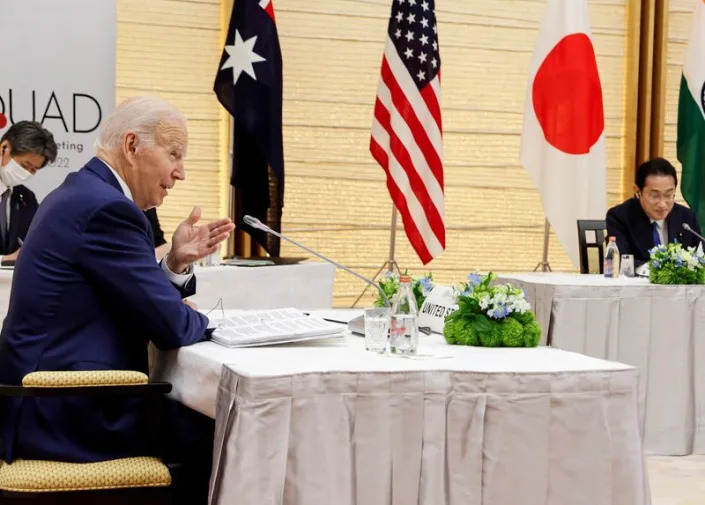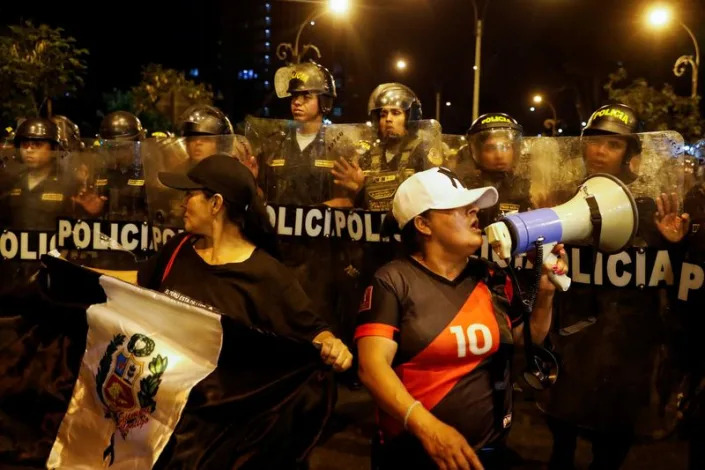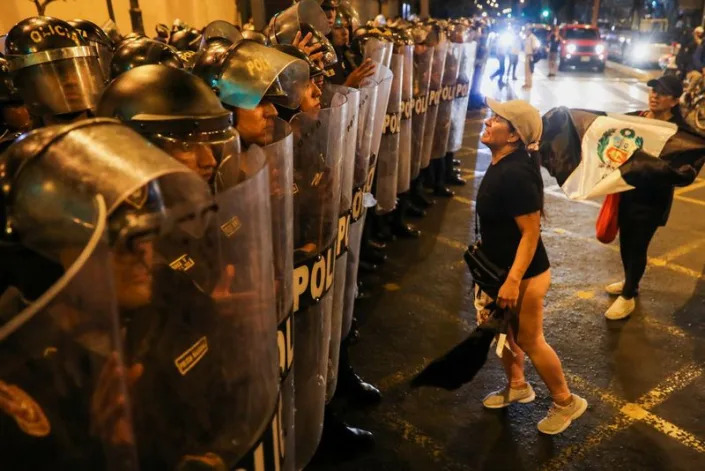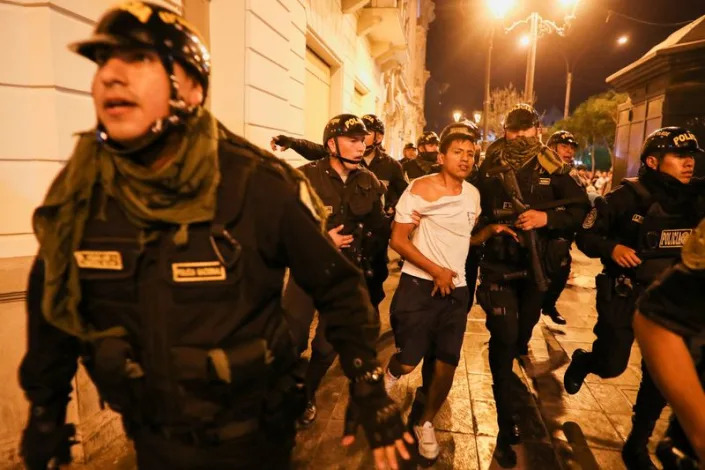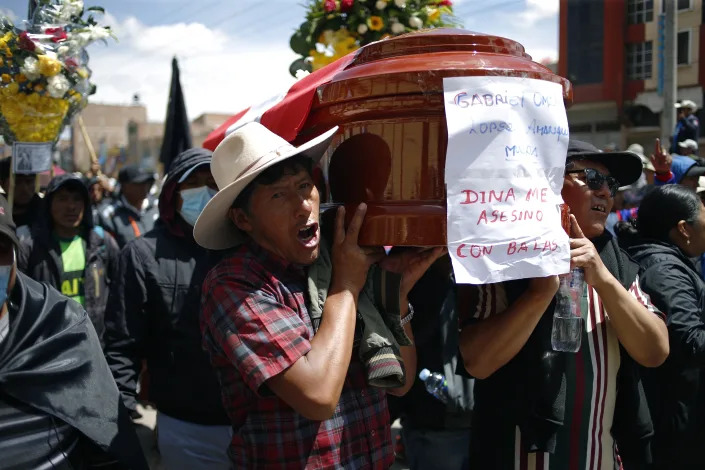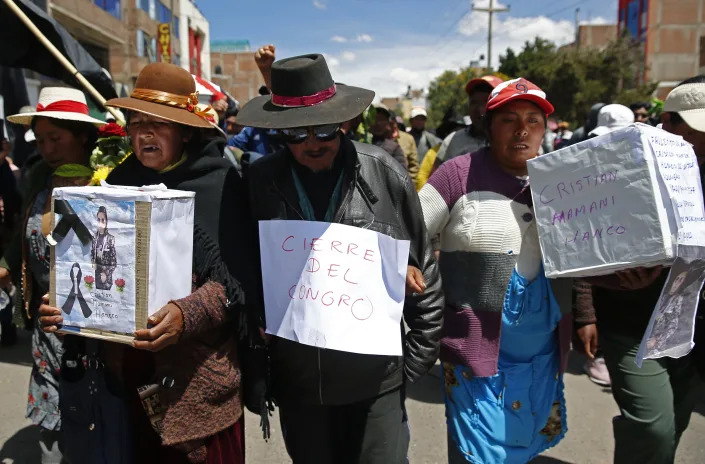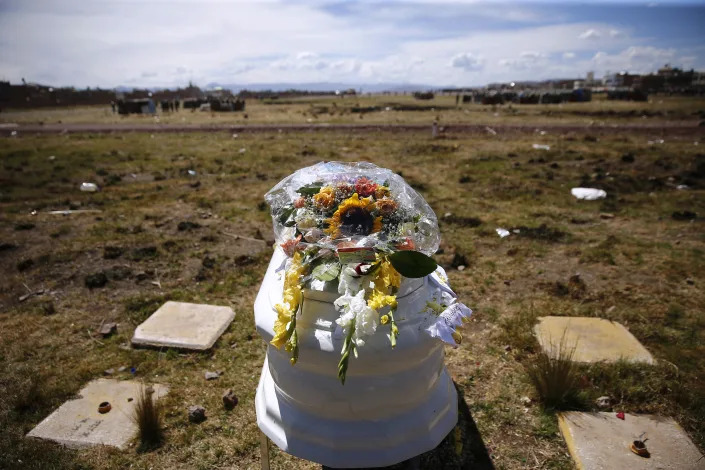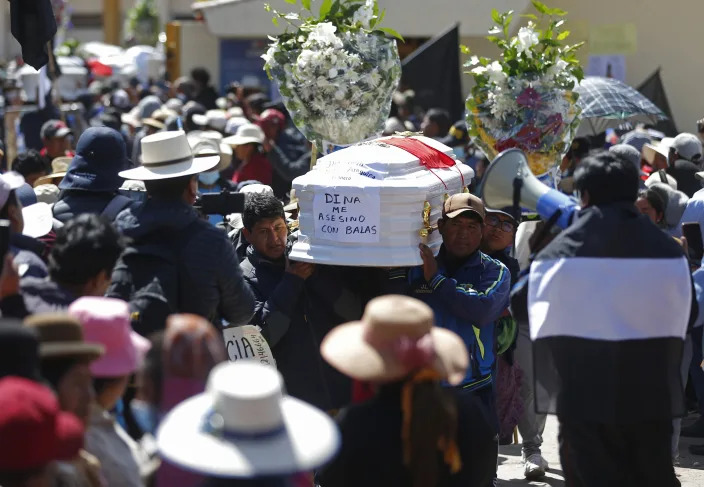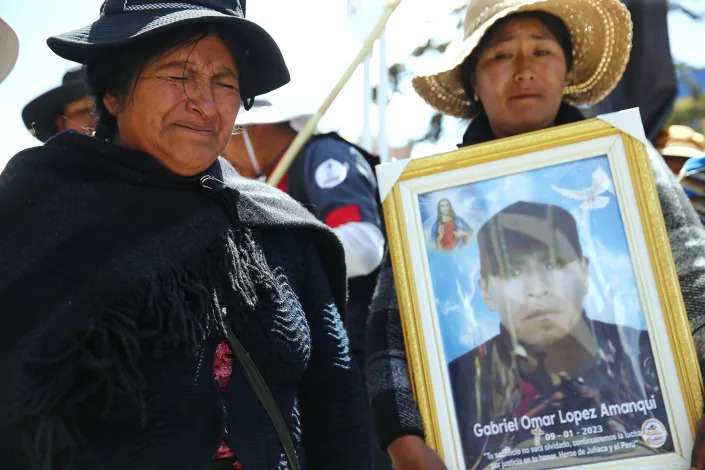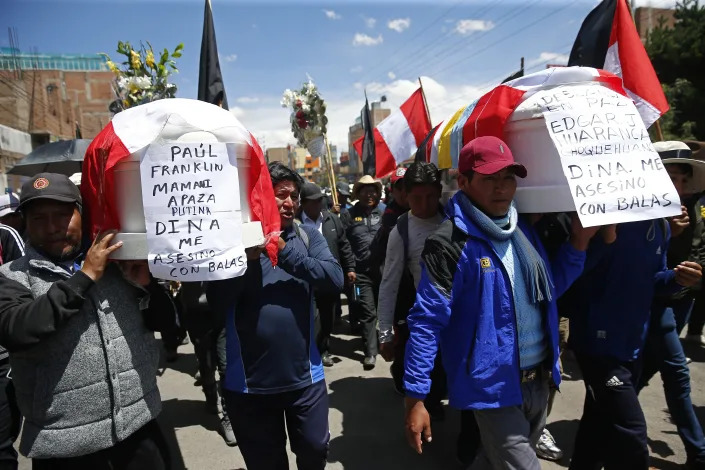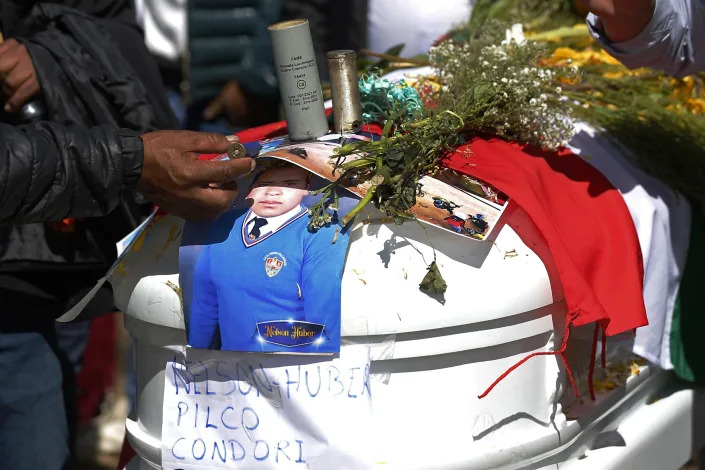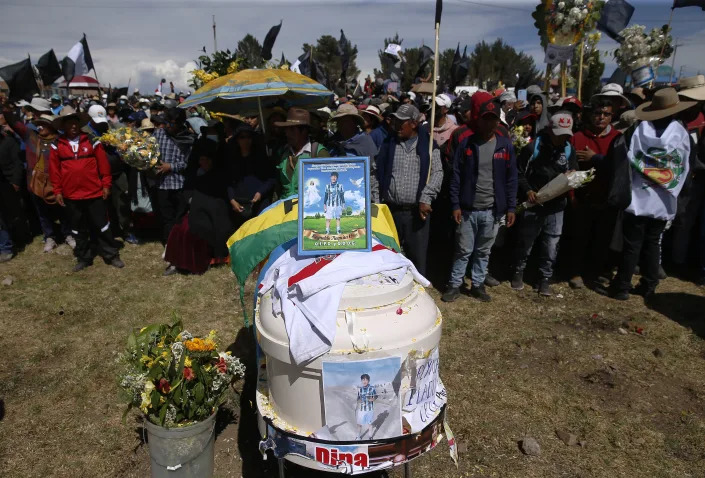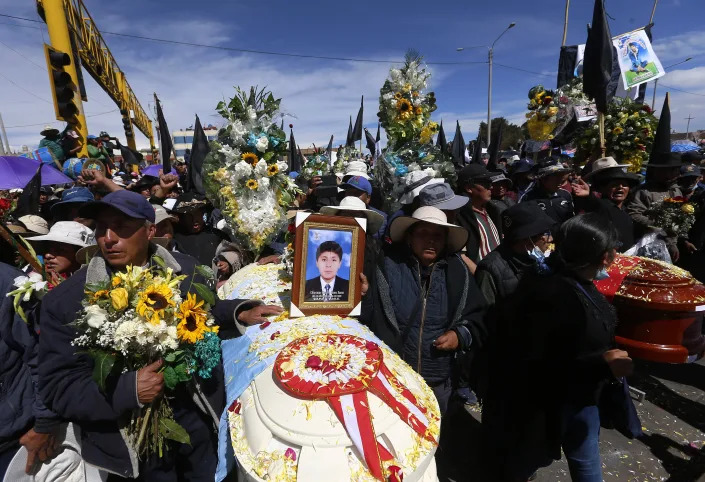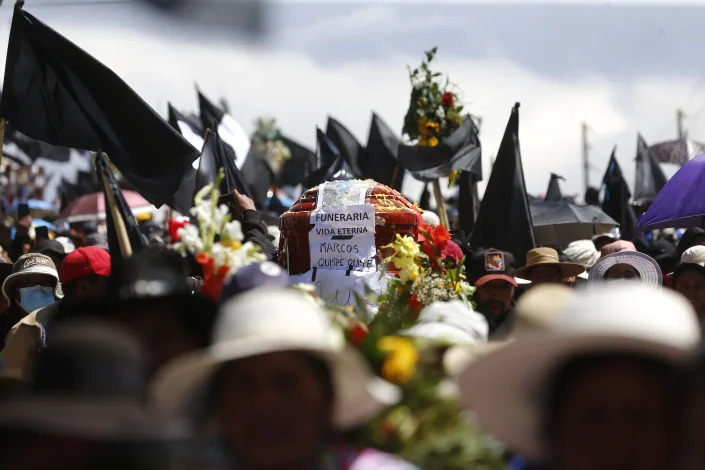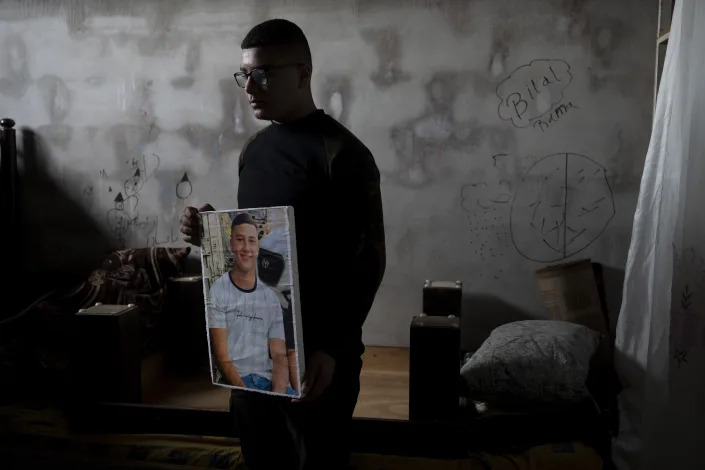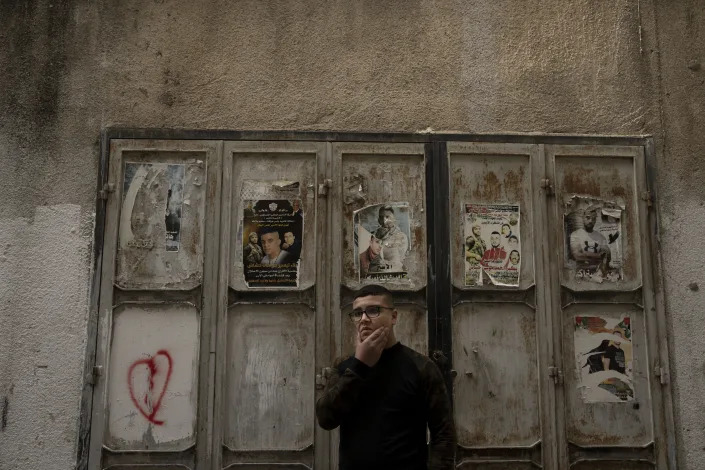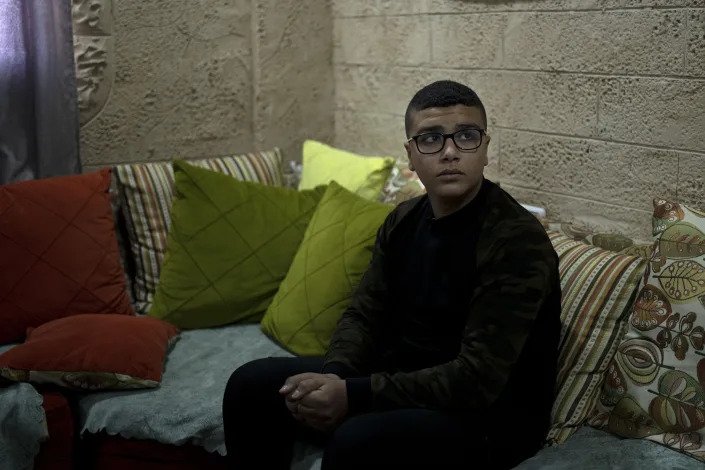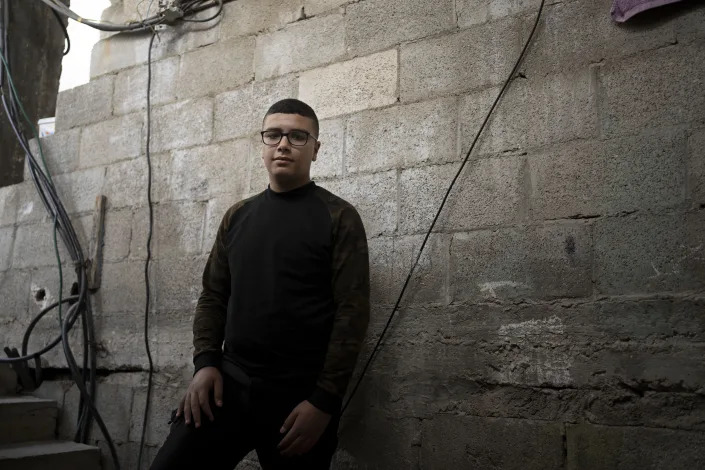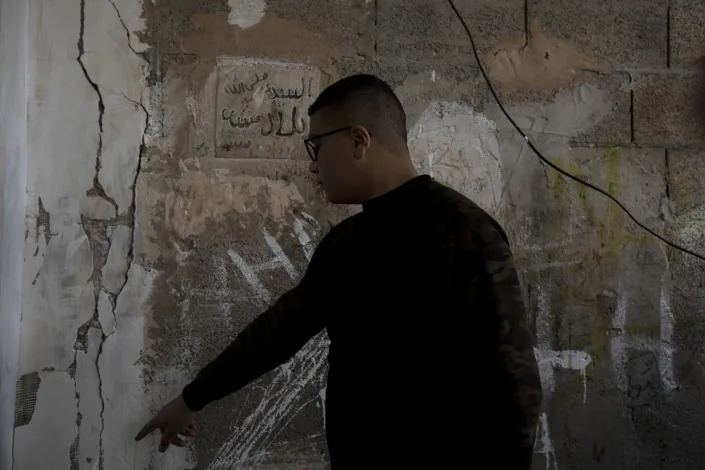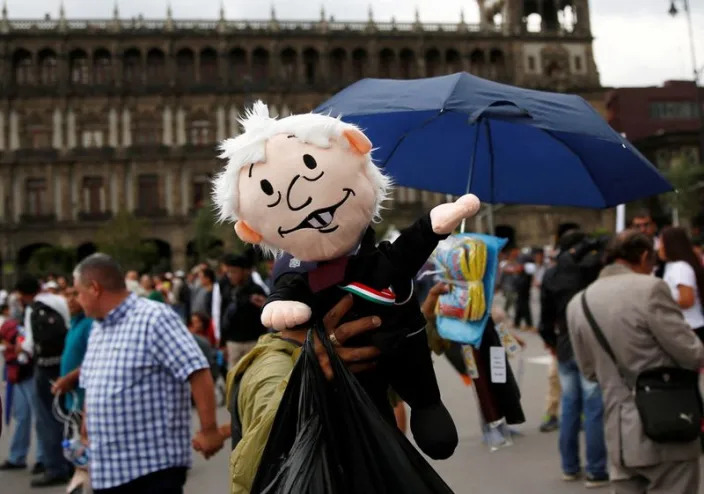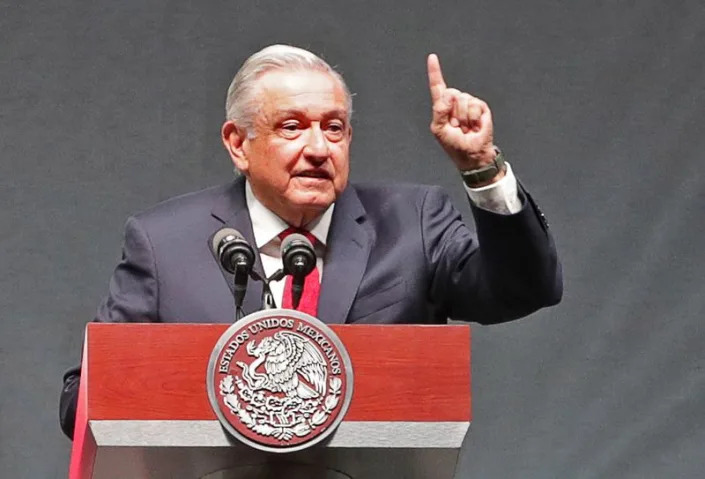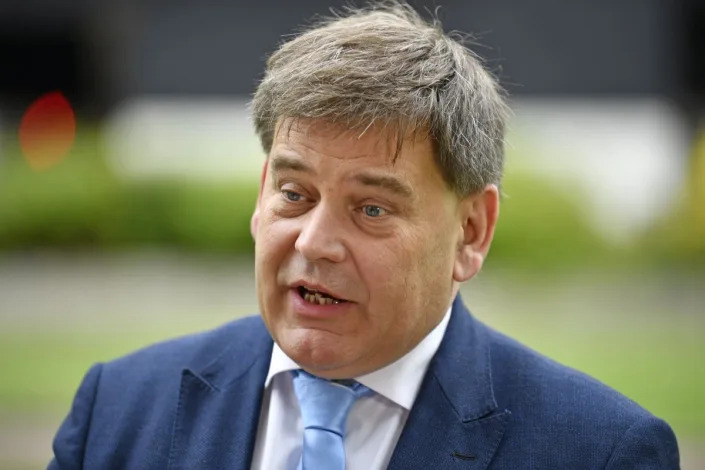Together they can: In Palestinian village, a model of self-sufficiency
Taylor LuckCHRISTIAN SCIENCE MONITOR
Wed, January 11, 2023
Pausing to reflect as she tends to sprouting tomato plants, Hanin Rizaqallah, a 40-something mother of two, says she never imagined she would become a farmer.
But standing in the 100-square-foot, plastic-canopied greenhouse behind her traditional stone-and-concrete home, she says she now feels a connection to her land, her village, and her “elders.”
“I never thought I would be farming like my grandparents, but having a home garden is not only economical, it is something that is ours,” she says, speaking over the moos of her neighbor’s cow from behind the fence.
Last season she sold 11,000 pounds of molokhiya, a leafy green obtained from jute plants, supplying her village and several area markets with the Palestinian staple. And she is constantly studying village and market needs for the next season, with her dutiful husband, Maher, working alongside, under her watchful eye.
Part traditional farmer, part entrepreneur, in two short years Ms. Rizaqallah has become a pillar of her village community and a provider of food for dozens of households.
“We all contribute. To depend on yourself and your neighbors for food and income is something powerful,” she says as she and her husband check on their current tomato crop. “This is a safety net if one of our neighbors’ crops fails. Here, we can count on each other.”
In Farkha, you are never far from a helping hand.
In this West Bank village, residents are building on centuries of rural, small-town cooperation – blended with modern concepts of volunteering – to create their own model: social solidarity for self-sufficiency.
It’s an ambitious model that has helped Farkha make communitywide improvements while enhancing its autonomy by relying less on Israel and the inefficient and distrusted Palestinian Authority.
“Stronger together”
Just as in the old days, everyone here pitches in when a neighbor needs to patch a roof, a farmer is struggling to finish his harvest, or the girls’ school needs a new coat of paint – tapping into the Palestinian concept of al Ouneh, or collective philanthropy.
But today in this village, 21 miles northwest of Ramallah, all community works are highly organized, drawing on corporate efficiency and the participatory spirit of town hall democracy.
The coordination can be seen in the 230 home gardens that have popped up in the past few years. Residents like Ms. Rizaqallah and her husband grow crops and raise livestock in their backyards and distribute to one another on a rotation, so everyone’s food needs are met.
This revival of al Ouneh is thanks to a generation of millennial and Generation Z residents entering local politics. After years of volunteering, these young leftists and political independents are merging a passion for community service with a reverence for a lost way of farming life in the West Bank that was once sustainable and self-reliant.
“Others may say volunteering will only take a bit of your time, but in Farkha that is not the case,” says Farkha’s youthful mayor, Mustafa Hammad.
“In this village, volunteering means work, time, and effort. But at the end of the day there are real results, and everyone is stronger together.”
Volunteering roots
Farkha’s modern volunteerism dates to the 1980s, when village youths who participated in volunteer camps organized by then-Nazareth Mayor Tawfiq Zayed, a communist and champion of community work, launched their own volunteering “festival.”
Since 1991, thousands have taken part in the Farkha International Youth Festival, during which volunteers carry out public works across the village, learn new skills, and eat food home-cooked by grateful families.
Beginning in 2017, young men who grew up taking part in and organizing the festival started running for the local village council, winning seats and applying their volunteer experience on a wider scale in the form of public policy.
Under their municipal volunteer scheme, Farkha’s village council lists weekly projects, and within hours people pledge their time, funds, and materials to carry them out.
For the past five years, the maintenance of schools and streets has been conducted year-round and self-funded by the community; residents no longer wait for the lethargic Palestinian Authority to act.
The program has transformed the look of the village: Residents have renovated Farkha’s historical center and Ottoman stone houses, rebuilt part of a high school, created a football pitch, built the village’s first children’s center, and developed an eco-farm.
“When people started to feel the value of their public spaces and facilities, they started to take care of them. They began to realize that ‘private’ property is not more important than ‘public’ property,’ but in fact public spaces are more important,” says Mr. Hammad. “Volunteering has become a culture here.”
When COVID-19 and its lockdowns hit, the young village council members provided residents with saplings and seedlings to manage food shortages and encourage a return to their farming roots.
While some grow spinach and potatoes, today other residents raise chickens or sheep and provide eggs and milk to one another, harking back to a time before the first intifada 35 years ago when the village was completely self-reliant for food.
Independence bid
There is a deeper purpose to this revival of social solidarity.
Farkha still relies on the Palestinian Authority and Israel for a large portion of its water.
The high price and taxes imposed on water from Israel and the Palestinian Authority have raised costs for farmers, many of whom say they have turned their backs on commercial farming as economically noncompetitive.
Instead, many work on Israeli settlements within the West Bank, where they can make three times the income.
To help people return to farming, the Farkha village council took over the distribution of water to farmers directly, without the service fees the Palestinian Authority normally charges.
It has already made an impact.
Ghazi al-Sharif, a 20-something agricultural engineer, did his own economic feasibility study and found that with the new lowered water costs, growing vegetables in a plastic hothouse could be profitable. He acted.
“To be able to practice what I studied in my home village is something special,” he says as he prunes a tomato vine in his hothouse. “Some of my friends think I am crazy, but I am making a living from our own land and selling to my neighbors. We are becoming more connected.”
Now, the village council is focusing on building two large artesian wells, in compliance with Israeli restrictions to complement home wells, to make the village completely water independent. The new wells are expected to cut water costs for Farkha farmers and residents by half; a solar energy project is planned that aims to take Farkha off-grid.
“We cannot become 100% self-sufficient in all areas within the next four years, but we can become completely self-sufficient in some areas,” says Mr. Hammad.
“If you can cut water costs for people, you will encourage people to farm. If you encourage people to farm, you will have food security and a source of income, so people don’t feel like their only choice is to work in settlements on occupied land.”
Community in a bottle of oil
This community-first ethos can be found even in Farkha’s olive oil.
To lower farmers’ costs and encourage residents to process their olive oil in line with European Union standards, the village council and nearby voluntary associations came together and built their very own olive press.
After learning about certified organic and environment-friendly production methods of extra-virgin olive oil at Farkha’s community eco-farm, the village now exports to France and Belgium.
At the communal olive press on a late October night, farmers backed their trucks in to unload hundreds of pounds of freshly picked olives and stayed with one another until everyone’s press was done.
“We have all helped picked each other’s trees; now we press oil together,” says Mohammed, a Farkha resident. “My harvest is not finished until all our harvests are finished.”
Farkha’s young visionaries have larger plans: spreading their al Ouneh-based model to other Palestinian communities.
They have established a West Bank volunteer network, with a second branch in Tulkarm – founded by young men and women who participated in Farkha’s festival – and a third in Ramallah.
Under the new network, democratic local councils will identify and organize public works, just as in Farkha.
“Topography and geography do not make a village,” Mr. Hammad says. “Social cohesion is what makes a village.”
Related stories
